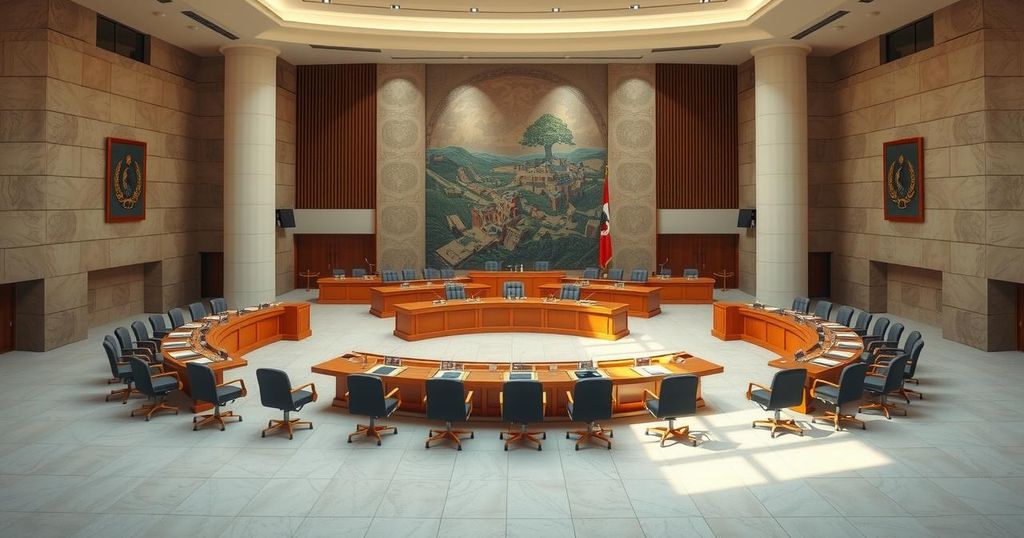Syria’s transitional president Ahmed al-Sharaa announced a four to five-year timeline for presidential elections. He emphasized the need to rebuild infrastructure and update electoral data before conducting elections. Al-Sharaa’s governance approach adheres to international norms and aims to create an inclusive government through a national conference.
On January 30, Syria’s transitional president Ahmed al-Sharaa announced a projected timeline of four to five years for the first presidential elections since the overthrow of Bashar al-Assad. Al-Sharaa, a former leader of the rebel group that ousted Assad, indicated the need for significant infrastructure to be rebuilt to facilitate trustworthy elections. During an interview with Syria TV, he emphasized the importance of updating electoral data to assure the legitimacy of the elections.
Al-Sharaa indicated that the Syrian authorities would adhere to international norms regarding transitional governance, which would lead to an elected presidency. Although specific international guidelines were not disclosed, he assured that the objective was a transition towards electing a legitimate authority. Following his declaration as transitional president, he was granted authority to establish a temporary legislative council while suspending the current constitution.
Furthermore, Al-Sharaa pledged to initiate a political transition by facilitating a national conference aimed at constituting an inclusive government. He stated the intent to form a preparatory committee for consultations across Syria, which would involve representatives believed to embody the interests of the Syrian populace. This conference aims to address key national issues and will produce a fundamental statement to guide a future constitutional declaration.
In a previous statement, Al-Sharaa indicated that assembling a new constitution could take as much as three years, highlighting the extensive preparation required to stabilize the country post-conflict. His emphasis on rebuilding infrastructure and conducting population assessments underscores the challenges faced in ensuring credible governance moving forward.
The announcement from Ahmed al-Sharaa marks a significant turning point for Syria following the ouster of long-time leader Bashar al-Assad. As a former rebel and new transitional president, al-Sharaa’s governance plan focuses on rebuilding the nation’s infrastructure and enhancing the electoral process to ensure the legitimacy of future elections. His approach involves adhering to international norms and engaging representatives from various Syrian communities to foster a sense of unity and inclusiveness in governance.
Ahmed al-Sharaa’s declaration of a four to five-year timeline for presidential elections underscores his commitment to rebuilding Syria’s governance framework. By prioritizing infrastructure and data integrity, he aims to facilitate credible electoral processes while navigating the complexities of establishing a new legislative council and constitution. Al-Sharaa’s focus on inclusivity and consultation suggests a sincere effort toward a stable and democratic transition in Syria.
Original Source: www.hindustantimes.com




